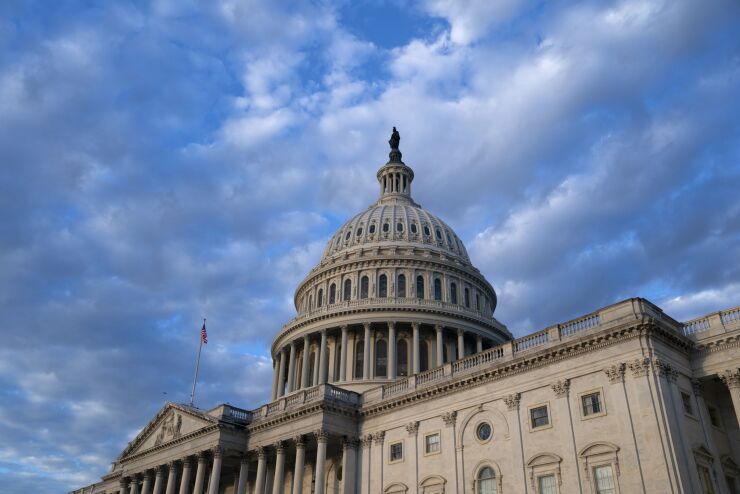House Republicans leaders are planning to accelerate new Medicaid work requirements to December 2026 in a deal with ultra-conservatives on the giant tax bill, according to a lawmaker familiar with the discussions.
The revised version of President Donald Trump's economic package — which party leaders hope to release Wednesday — calls to move up work requirements to December 2026 from 2029, the lawmaker said, who requested anonymity to discuss private talks.
Work requirements have been a sticking point in reaching agreement on Trump's tax bill, as Speaker Mike Johnson attempts to navigate a narrow and fractious majority.
The December 2026 deadline would fall just one month after midterm elections, with Democrats eager to criticize Republicans for restricting health benefits for low-income households.
The lawmaker said there will be a waiver process for states unable to quickly comply with the deadline. The person also said that changes to the federal match for Medicaid enrollees won't be in the bill and talks continue on changes to Medicaid provider taxes.
The debate over Medicaid has pinned lawmakers from high-tax states against hardliners. It's unclear whether the move will cause problems for moderate Republicans who have expressed concerns about the scope of cuts to the health care program for low-income people and those with disabilities.
Trump and Johnson plan to meet with ultraconservative lawmakers at the White House at 3 p.m., a person familiar with the plans said.
Congressional budget analysts have estimated that Medicaid policies including the longer timeline for work requirements would cause 7.7 million people to lose insurance coverage over the next decade.
A spokesperson for Representative Jeff Hurd, a Colorado Republican who had signed a letter cautioning Johnson on the scope of Medicaid cuts in April, said Hurd is supportive of the proposal to accelerate work requirements.
Johnson can only lose a handful of votes and still pass the bill, which is the centerpiece of Trump's legislative agenda.
The new date is also likely to provoke a backlash in the Senate.
It will be very difficult for states to implement the work requirements in a year and a half, said Matt Salo, a consultant who advises health care companies and formerly worked for the National Association of Medicaid Directors.
Squeezing the process of creating work requirements in every state into a compressed time frame is "almost a guarantee it won't work" and will result in people who qualify for health coverage getting kicked out of the program, Salo said.
"Trying to speed run this into a much tighter time frame to hit an arbitrary budget target is not a recipe for success," Salo said.
States will also have to wait on the federal government to guide them on some important policy decisions, said Matthew Fiedler, a senior fellow in health policy and economics at the Brookings Institution.
For example, people who are "medically frail" or have "special medical needs" are supposed to be exempt from work requirements, but the U.S. Department of Health and Human Services will have to decide exactly who falls into that category.
Shortening the time available for states to set up their programs gives them less time to build out data systems that can talk to each other, Fiedler said. States can use data from payroll systems, nutrition assistance programs or unemployment benefits to inform their programs, but a shorter timeline will increase the chance that eligible people fall through the cracks and lose health coverage.






